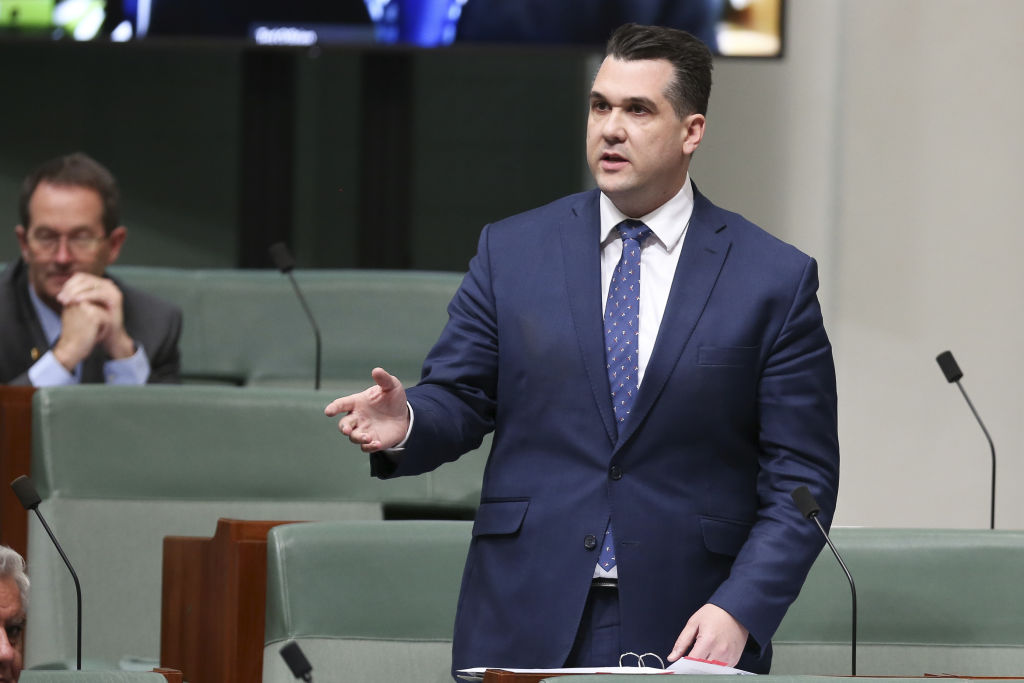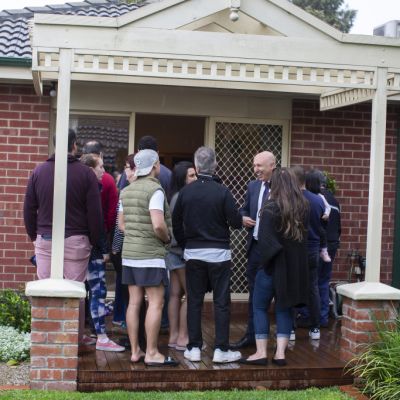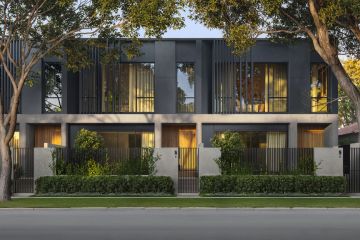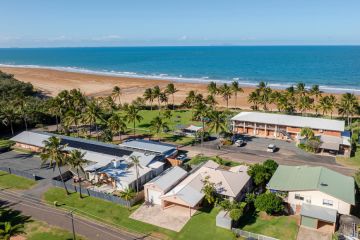First Home Loan Deposit Scheme extended for new builds, price caps increased

The building industry has welcomed the extension of the federal government’s First Home Loan Deposit Scheme, but experts have warned of the risk of borrowers taking on more debt.
It will enable an extra 10,000 buyers who build new homes to get into the property market with a deposit as low as 5 per cent while avoiding lenders’ mortgage insurance, with the federal government acting as guarantor on the loans.
Price caps for the scheme will be lifted, allowing Sydney buyers to purchase a $950,000 home with a deposit of only $47,500. The previous limit was $700,000 and buyers were not restricted to new builds.
Melbourne’s cap will lift to $850,000 from $600,000, while Brisbane will lift to $650,000 from $475,000.
| Extended First Home Loan Deposit Scheme price caps | ||
| State/Territory | Capital city/regional centre | Rest of state |
| NSW | $950,000 | $600,000 |
| VIC | $850,000 | $550,000 |
| QLD | $650,000 | $500,000 |
| WA | $550,000 | $400,000 |
| SA | $550,000 | $400,000 |
| TAS | $550,000 | $400,000 |
| ACT | $600,000 | N/A |
| NT | $550,000 | N/A |
Source: Housing Minister and Assistant Treasurer
Housing Minister and Assistant Treasurer Michael Sukkar said in a statement on Saturday the program would drive more construction and support jobs as the economy recovers from the COVID-19 pandemic recession.
“The additional grants will not only help first home buyers but also support the jobs of Australia’s tradies at a time when the economy needs it most,” he said.
The places will be open from October 6 until June 30 next year.
The pre-Budget push to support construction jobs comes after the industry raised concerns about the limited time frame for another program, HomeBuilder, which is open to buyers who enter into a building contract by December 31 if construction starts within three months.
Purchasers who build a new home worth up to $750,000 or undertake a substantial renovation can get $25,000 grants through the HomeBuilder scheme, which is limited to low- and middle-income earners.
But busy builders said the short time frame was forcing them to turn potential customers away to meet their obligations to current clients, while others in the priciest cities reported strong enquiries but few customers qualifying.
The industry has backed the latest announcement, saying it would support construction jobs.
Izaac Mathieson, general manager of sales and marketing of Queensland-based builder Hallmark Homes, said the extension of the scheme was welcome news.
“That’s a sensible approach given that the HomeBuilder grant runs out at the end of the year,” he said. “It’s great to see an incentive for first-home buyers and new builds into the new year.”
The scheme’s extension will allow first-homeowners in Brisbane and regional Queensland centres to access properties worth up to $650,000 – an increase from $475,000.
Mr Mathieson said any first-home buyer in the market looking for a home above $650,000 “probably doesn’t need the scheme”.
AMP Capital chief economist Shane Oliver noted recent plans to wind back responsible lending obligations had forced banks to scrutinise borrower expenses to make sure they could repay loans.
“Coming on the back of HomeBuilder and the removal of responsible lender obligations the Government is clearly focussed on supporting the housing market,” Dr Oliver wrote in a note to clients.
“The risk is that it just drives even more people into lots more debt and a possible eventual oversupply of homes given the hit to immigration.”
Stockland chief executive of communities Andrew Whitson said the program would help first-home buyers enter the market, adding that building new homes was an important job multiplier.
“The extension of the scheme will provide welcome stimulus and confidence to the new housing sector, particularly in NSW where the increased price cap will be most beneficial,” he said.
“Buyer confidence is critical to help drive demand and continue to support jobs around the country, and this measure will help restore confidence in the market.”
Housing Industry Association managing director Graham Wolfe said the changes “will support jobs in the residential building industry”.
“The extra 10,000 places for new homes and apartments that the Government has put into this scheme will ensure more first home buyers achieve their goal of owning a home sooner,” he said.
Urban Taskforce chief executive Tom Forrest also welcomed the news, noting it would include the purchase of new apartments, but called on the federal government to apply a similar approach to the HomeBuilder grants.
“The HomeBuilder scheme remains difficult for new apartment purchasers,” he said. “The timeframes for the completion of construction simply don’t work for most projects. The thresholds effectively exclude most new properties in Sydney.”
The peak body for real estate agents called for the extension to be applied to buyers of established housing too.
Minister Sukkar noted some buyers may be able to take advantage of the expanded low-deposit scheme, the HomeBuilder grant and state or territory incentives.
“Combined, the First Home Loan Deposit Scheme, HomeBuilder and the First Home Super Saver Scheme represent an unprecedented level of Federal Government assistance for home buyers and the construction industry alike,” he said.
Recent research found the average first-home buyer couple in Sydney would have to save for six years and six months for a 20 per cent deposit on an entry-level house, while Melbourne buyers face six years of saving.
The First Home Loan Deposit Scheme attracted strong interest when it opened in January, offering 10,000 places for the 2019-20 financial year. Another 10,000 places were opened on July 1 for this financial year.
We recommend
We thought you might like
States
Capital Cities
Capital Cities - Rentals
Popular Areas
Allhomes
More









